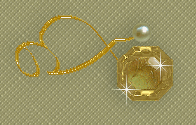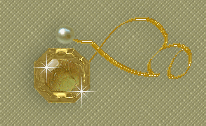



| St.
Catherine of Siena: Biography Adapted by Catholic Tradition from SAINT CATHERINE OF SIENA by Mother Frances A. Forbes, a nun of the Society of the Scared Heart in Scotland who was a convert and highly regarded by Cardinal Merry de Val, a close friend of Pope St. Pius X. Nihil Obstat and Imprimatur, 1913. Currently published by TAN BOOKS. Chapter 10 FROM CROSS TO CROWN  HE last months in Rome had been a
time of intense suffering for Catherine both in HE last months in Rome had been a
time of intense suffering for Catherine both in soul and body; she had labored incessantly in the cause of Christ, bearing sorrow after sorrow with a breaking heart. The mysterious agony that was to last for three months had already begun, and to those who watched her with loving eyes it seemed as if she were suffering in a spiritual manner that Martyrdom which she had always so ardently desired. Early in February Barduccio Carrigiani wrote to his sister, a nun in Florence: "I think you know that her prayers were of such intensity that one hour of prayer more consumed that poor little body than two days upon the rack would have done another. Therefore every morning with tears we lifted her up after Communion in such a state that those who so saw her deemed her dead and carried her to her couch. And after an hour or two she would rise up, and we went to San Pietro, and then she set herself to prayer, and she remained there till nearly vespers, after which she returned home so exhausted that she seemed a dead woman, and thus she continued every day ... until the third Sunday in Lent." Fra Raimondo was still absent on his ill-starred embassy to France in which a more adventurous man than he might well have failed. His vigorous preaching at Genoa, however, had not been without effect upon the people and had caused considerable annoyance to Clement and his partisans. Catherine wrote two letters of farewell to the beloved friend whom she knew she was never to see again and whose presence would have been so great a consolation. Even then, with her last breath, she urged him to strength and courage in the fight. "Now is the time, dearest Father, to lose oneself utterly, to think nothing about self, even as did the glorious laborers who with such great love and desire offered up the life of their body and watered this garden with blood, with humble and continual prayers, and by enduring even unto death . . . Now I know not what the Divine Goodness will please to do with me," she continues, after describing her bodily and spiritual suffering. "I do not say that I perceive His Will and intention with regard to me; but as to bodily sensation it seems to me that I am to consume it [her life] at this time with a new martyrdom in the sweetness of my soul, that is, in Holy Church. I have prayed and am praying His infinite mercy to accomplish His Will in me ..." "... May that generosity toward the poor and that voluntary poverty which you have always practiced be renewed and refreshed in you with all true and perfect humility. Do not slacken in these for any dignity or exaltation that God may give you, but descend more deeply into that valley of Humility, rejoicing in the table of the Cross." Then follow a few words of comfort to him in the pain she knows he must be feeling to be so far from her at such a time. "Do not make yourself unhappy because with bodily presence I am far away from you and you from me; for although your presence would be a very great comfort to me, I have greater consolation and gladness at seeing the fruit that you are producing in Holy Church. Take comfort, take comfort in Christ sweet Jesus, without any bitterness." On the third Sunday in Lent, as Catherine was praying in the Church of St. Peter's before Giotto's great picture of the Navicella or "Bark of St. Peter," she had a mysterious vision in which that great ship of the Church which the master had represented was laid upon her shoulders. The weight of it crushed her to the earth, and she understood that in some way she was to give her life as a victim for Holy Church. From that moment her strength seemed to be ebbing gradually away. Catherine's spiritual family had received a new recruit since she had been in Rome in the person of Tommaso Petra, the secretary of the Pope, who had become her devoted friend and disciple. Hearing of her illness he went to visit her and found her lying on her hard bed of boards, wasted to a shadow. He begged her to give a little word of advice to each of her children that they might treasure in their hearts when she had left them, in order that they might know what she most desired of them. At his request Catherine summoned those of the family who were then in Rome and gave them her last instructions. "Let them practice continual and humble prayer," she said, "and refrain from judging others or even discussing their doings. Let them put their trust and confidence in God, and love one another, that they might be truly her beloved children. Let them offer tears and fervent prayers in the sight of God for His Holy Church." Then, having asked their pardon for any pain or trouble she might have caused them, she blessed them one by one in Christ as they knelt weeping by her couch. On Holy Saturday, Fra Bartolommeo Domenico arrived in Rome. Having heard nothing of Catherine's illness, he was horrified to find such a change in her. She was so weak that she could not raise her voice above a whisper or even turn upon her couch. On Easter Sunday he celebrated Mass in her room. To the amazement of all present, at the moment of Holy Communion she rose and, coming forward with the others, knelt to receive the Blessed Sacrament at his hands. The weakness returned later, but she was able to speak more easily. Fra Bartolommeo was Prior of the Church of St. Dominic at Siena and was forced to return to his monastery a few days afterward, to his great grief, for he would have remained until the end. Soon after his departure Catherine's prayer was granted, and Stefano Maconi arrived in Rome. He had been told that she was ill and, while praying for her one night in great sorrow, heard a voice calling to him suddenly: "Go to Rome, for the time of thy dear Mother's departure is at hand." It was beside her deathbed that the light for which he had been waiting so long was at last to break on his soul. God was calling him, Catherine said, to the Carthusian Order, and her words brought great peace to the troubled mind of the young disciple with the consciousness that she had spoken the truth and the desire that God's Will should be done in him. On the Sunday before Ascension Day, Catherine, whose strength was failing fast, received Extreme Unction. Shortly after it seemed as if the evil spirits were making one more desperate effort to shake the peace of her soul. Then, as if the last battle had been fought and won, her face resumed its expression of radiant joy and she sat up, supported in the arms of Alessia, her beloved daughter and disciple. Fixing her eyes upon the Crucifix, she spoke to her family for the last time of the goodness of God, asking once more their pardon for any pain she might have caused them during her life. Turning to Lapa, who was crying bitterly beside her, she asked her blessing, but her mother would not be content when she had given it until Catherine had blessed her in return, and she continued to ask her to pray to God that she might not offend Him by her sorrow. Then Catherine prayed for the Church and for the Pope and for all her friends and children, after which she blessed them all with the Sign of the Cross. "Lord, Thou dost summon me to Thyself," she said, "and I am coming to Thee, not by my own merits, but solely through Thy mercy, which mercy I crave from Thee in virtue of Thy Blood." "Then sweetly, with her face like an Angel's," says Barduccio, "bowing down her head she gave up the ghost." Thus on April the 29th, the Sunday before Ascension Day, in the year 1380, Catherine, the blessed Spouse of Christ, passed joyfully to her eternal rest. Her three and thirty years of labor and suffering were over, but the memory of her beautiful life will be fragrant forever in the Church that she loved so well. It was Stefano Maconi who bore the body of his beloved friend and Mother to the Church of the Minerva, where it was exposed, clad in the familiar white robe and black mantle, to the veneration of the people. Men and women thronged to kiss the feet or to touch the garments of the Saint, bringing with them friends and relations, infirm either in body or in soul, to be recommended to her prayers. The noise of the miracles that were worked spread so rapidly through the city that the church was crowded with people both by day and night. Stefano and the other disciples watched beside the body until the funeral, at which Pope Urban himself had commanded all the clergy in Rome to be present. A solemn Requiem was sung two days later at the request of the Roman citizens, in gratitude to the friend who had labored so earnestly for their welfare. At the time of Catherine's death Fra Raimondo was purposing to leave Genoa for Pisa. He was anxious about the journey that lay before him, for a storm was raging on the sea and the soldiers of Clement were lying in wait to take vengeance on him for the crusade he had been preaching against the anti-Pope. He had just said his morning Mass and was going to make his first preparations for departure when he stopped to say the Regina Coeli before the statue of the Madonna. Suddenly a voice spoke in his heart: "Fear not, fear not," it said, "I am here for your sake; I am in Heaven for you. I will protect and defend you." Shortly afterward came the sad news of Catherine's death, and Fra Raimondo understood. To Tommaso Petra it was also given to share in the knowledge of Catherine's joy. He saw a multitude of heavenly spirits clothed in white who told him that they were accompanying her blessed soul into the presence of Christ. They were followed by the Saint herself walking with down-beat head and with her hands full of palm branches. "If it be Catherine," prayed Tommaso, "let me see her face." As he spoke she turned in his direction, smiling at him with the old radiant smile, and went her way to the music of the Angels' song. Catherine Benincasa had died of a broken heart, yet her soul had been filled even during life with a joy which was not of this world. God had revealed to her that His Bride the Church, "which brings life to man," "holds in herself such life that no man can kill her." "Sweetest My daughter," He Himself had said to her, "thou seest how she has soiled her face with infirmity and self-love and grown puffed up by the pride and avarice of those who feed at her bosom. But take thy tears and sweats, drawing them from the fountain of My Divine charity, and cleanse her face, for I promise thee that her beauty shall not be restored to her by the sword, nor by cruelty nor war, but by peace, and by humble continual prayer, tears and sweats poured forth from the grieving desires of My servants. So thy desire shall be fulfilled in long abiding, and My Providence shall in no wise fail." |

 E-MAIL
E-MAIL